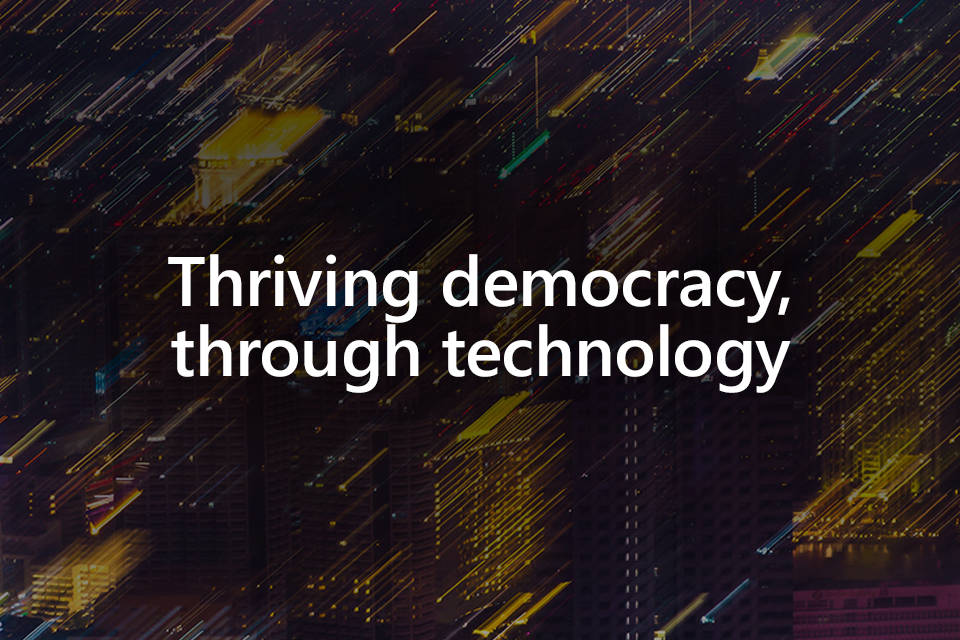
The right to participate in government is a fundamental one – and it originated in my home country of Greece over 2,000 years ago. It ensures that every citizen has a say in how their country is run, whether that’s by casting their ballots or by running for public office. But this democratic cornerstone is under threat. In recent years, we’ve seen an increase in disinformation campaigns and cyber-attacks against democratic institutions led by nation state actors.
The spread of disinformation is a particularly worrying trend. Microsoft-supported research shows that between 2013 and 2016, there were more than 96 separate social media campaigns targeting countries like the U.S., France, Poland, Germany and Ukraine with content that either aimed to distort objective facts, polarize debates, or defame political figures. Given how much we all rely on digital and media platforms to gather the information that ultimately shapes our political opinions, it’s no wonder that, in a recent Eurobarometer survey, more than half of respondents expressed dissatisfaction with steps taken so far to fight disinformation in the media.
Microsoft is playing its part in pushing back against this trend. In September, we announced two technologies targeting different aspects of this problem. One is Video Authenticator technology that helps identify photos and videos online that may be deepfakes, and the other is media authenticity technology, which helps viewers confirm that what they are looking at is actually from the source it purports to come from and hasn’t been altered. This is the latest offering within our Defending Democracy Program, a series of services focused on ensuring campaign security, election integrity, and disinformation defense.
But democratic systems are under attack at various stages. Manipulating citizens’ political opinions by spreading fake news and disinformation is sadly just one piece of the puzzle. Nation state actors are also working to undermine democratic processes more directly, by attacking the increasingly-digitized systems and mechanisms that enable to smooth running of elections. For instance, more and more countries are maintaining digital voter registration lists or disseminating results electronically, and some countries, such as Estonia, even offer citizens the option of casting their ballots online. This can facilitate citizen engagement in the electoral process – but it also creates an opening for malicious actors to undermine trust in these systems.
To counter these emerging threats, we need to look to the opportunities of technology. Another key pillar of our Defending Democracy Program is Microsoft AccountGuard, a state-of-the-art cybersecurity service available at no extra cost to all political candidates, parties, and campaign offices using Office 365, as well as think tanks, non-profits, and nongovernmental organizations working on issues related to democracy and electoral integrity – and, as of spring 2020, healthcare, human rights and humanitarian organizations.
AccountGuard provides unified detection and notification of cyber threats across accounts, guidance on how to secure networks and email systems, briefings on emerging threats, and early access to new security features. More than 2 million email accounts in 30 countries are currently protected by AccountGuard and we’ve made more than 1,500 notifications to customers that they’ve been targeted or breached by nation-states.
Much like any other complex institution, democracy has multiple building blocks; from ensuring voters are properly informed, to guaranteeing they can cast their ballots and that these will be properly counted, to confirming that the results of free and fair elections are accurate and indisputable. With each of these stages going digital, we need to make certain each phase is properly protected to create and maintain trust in the overall process. This is how we can contribute to a millennia-old tradition not only surviving, but thriving and evolving, in the digital age.





